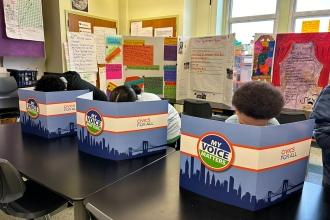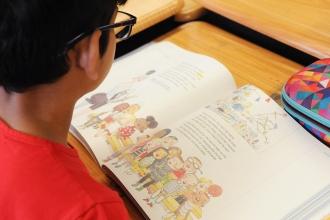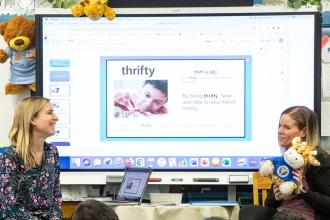Learning Curve
Therapists’ strategies that teachers can use
Incorporating strategies used by occupational, physical and speech therapists into classroom teaching can not only greatly benefit students with disabilities, but can also improve learning for all students. And the more teachers normalize using these strategies, the more special needs students will feel included and supported.
Taking BRAVE steps to end bullying
Two factors have contributed to the increase in bullying in recent years: the pervasiveness of social media and lingering stress from the pandemic. But no matter the reason, the surge has prompted educators to address the issue more urgently.
Teaching civics in every classroom
New York City’s Civics for All initiative, started in 2018, provides project-based and culturally responsive civics programs that prepare students to participate in democracy and become positive forces for change.
Meeting the needs of diverse learners
Given the city’s diverse student population, a pressing issue for educators has been how to differentiate instruction to reach all students using one of the new reading curriculum programs.
Staying in step with your teaching partner
Integrated co-teaching (ICT) classes are taught by two teachers — a general education or content-area teacher and a special education teacher. A co-teaching relationship needs two willing partners who are communicative, collaborative and cooperative to be successful.
Strategies to help new immigrant students
The influx of students from new-immigrant families these past few years has presented many challenges for New York City public school educators. Here are some proven strategies to support them.





